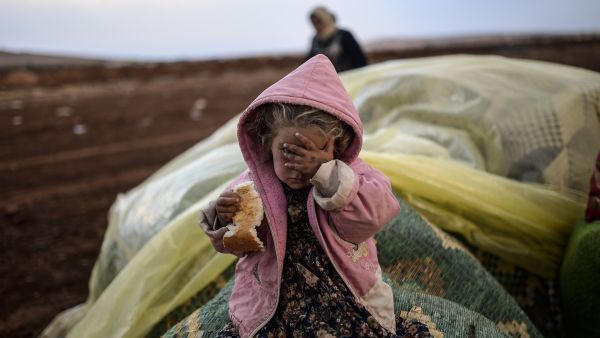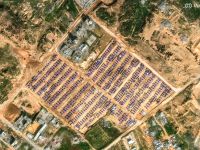Bad guests?
When I meet Abu Eisa, a well-established cook, he is busy preparing meals for poor Syrians for the first iftar of Ramadan. His hometown, Mafraq, a Jordanian border town close to Zaatari camp, is among the cities most affected by the influx of Syrian refugees, hosting around 100,000 Syrians and an equal number of Jordanians. Indignantly, Abu Eisa tells me: ‘When we bring iftar to poor people’s houses, I don’t work with aid organisations. All they want is taking pictures. Me, no. We call ahead and then just leave the food at the doorstep’.
Continue reading on LSE Middle East Centre
Transgender Muslims in America fight bigotry on two fronts
Confronted by Islamophobia in the streets and transphobia in the Muslim community, trans Muslims across the country are fighting against bigotry on two fronts. Organizations like the Transgender Muslim Support Network and Queer and Trans Muslim congregations, as well as other groups across the country, are struggling for change, but they are facing an uphill battle.
Kashua has a lot on his mind these days. A little over a year ago, Kashua and his family of five relocated from Jerusalem to Illinois in the wake of violent unrest in the summer of 2014. Though he’d lived in Israel his entire life, when the ‘Death to Arabs’ marches invaded his neighbourhood streets, ‘something in [him] broke’. As tensions mounted in the holy city, Kashua and his family landed at Chicago’s O’Hare Airport, bound for the cornfields of Urbana, Illinois. In the past year, his family has made a new life for itself in this college town, where Kashua teaches part-time and his wife is working towards a PhD in social work. Still, it is clear that distance from Israel has not brought him peace. The previous evening, Kashua had bookended his talk with subdued laments for his former home. ‘I miss Jerusalem’, he confessed, abruptly and repeatedly. His brief talk was punctuated by laden pauses, reminiscent of his writing where so much lies between the lines. At the end of his presentation, Kashua gave a reading from his latest book, Native: Dispatches from an Israeli-Arab Life, compiling excerpts from his weekly columns in Haaretz, which, when read in sequence, serve as a chronology of one man’s growing despair.







